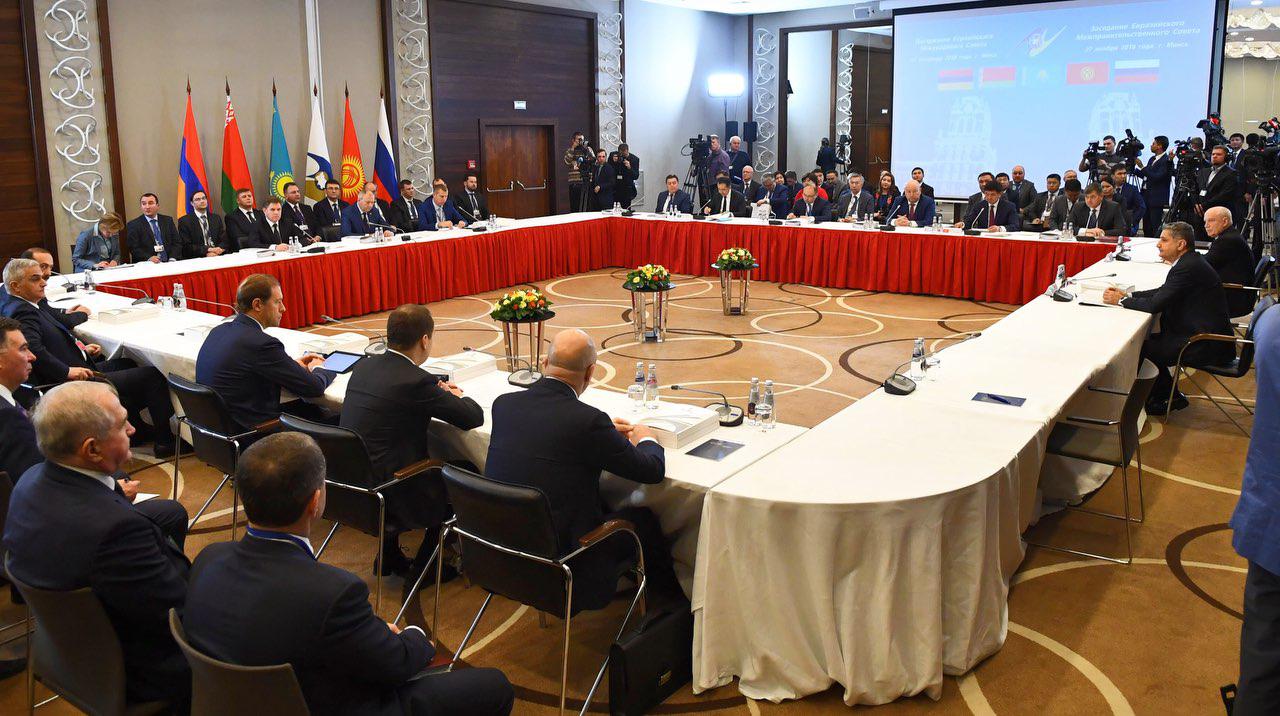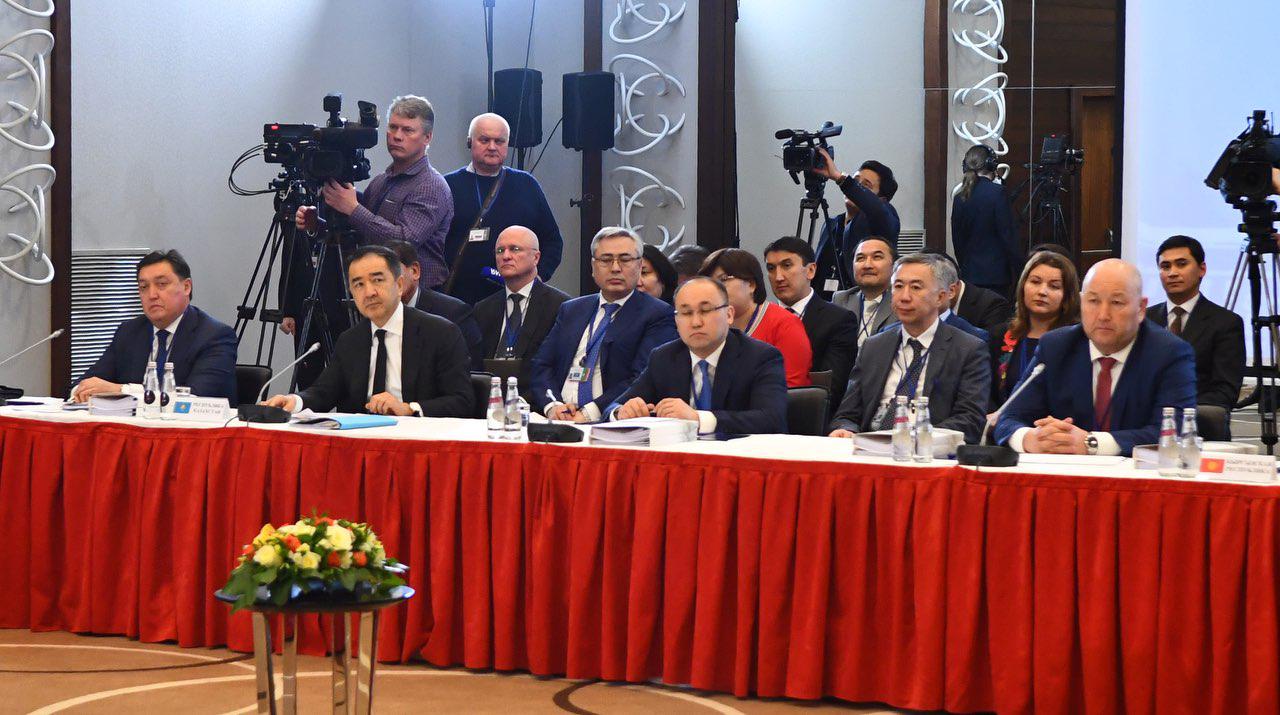27 November 2018, 13:18
Prime Minister Bakytzhan Sagintayev took part in a session of the Eurasian Intergovernmental Council in Minsk. The agenda includes 23 issues of trade and economic cooperation and expansion of mutual trade between the member states of the union, the elimination of obstacles in the internal EAEU market, as well as the development of integration potential in certain sectors of the economy.
The meeting was also attended by the Prime Ministers of Russia— Dmitry Medvedev, Belarus — Sergei Rumas, Kyrgyzstan — Mukhammedkaly Abylgaziyev, Acting Prime Minister of Armenia Ararat Mirzoyan.
Before the start of the meeting, President of the Republic of Belarus Alexander Lukashenko received the heads of participating government delegations. During the collective meeting, the union’s role in strengthening country cooperation was noted and positive growth rates of the EAEU’s main economic indicators were noted.
The session of the Intergovernmental Council was traditionally held in a narrow and extended composition.
In a narrow composition, the participants exchanged views on topical issues of economic cooperation, summed up the interim results of the implementation of the agreements reached and identified areas for further work in the union. In particular, the participants heard the reports on the implementation of the digital agenda, the formation of a common financial market, the principles of tax policy, the creation of a system of marking goods with identification marks, the use of a trademark of the Eurasian Economic Union, the removal of obstacles in the domestic market, etc. According to the Eurasian Economic Commission, in 2017–2018 about 25 barriers, restrictions and exemptions in the domestic market, impeding the development of mutual trade between the EAEU member states were eliminated.
In general, in a narrow format, the parties considered 14 issues on the agenda and noted that there is a universal focus on the further development and strengthening of the common union. At the same time, during the discussion, comments and suggestions made by the Kazakh side on a number of issues under consideration were taken into account. On the remaining agenda items, the positions of all countries are agreed and adopted without discussion.
The Chairman of the Executive Committee — CIS Executive Secretary Sergey Lebedev also took part in the meeting in an expanded format as an invited part.

Negotiations with an extended participation were devoted to the development of cooperation in the areas of trade, industry, agriculture, energy, food security and transparency in the passage of goods. The Kazakh side, in turn, raised the themes of expanding the Union’s foreign trade turnover and the prospects for creating a new tool for interaction in the field of economics and financial policy.
In his speech, Prime Minister of the Republic of Kazakhstan Bakytzhan Sagintayev noted that next year the idea of President of Kazakhstan Nursultan Nazarbayev to create an integration project, the basic principles of which are equality and mutual benefit will be 25 years old, and five years since the signing of the Treaty on creation of the Eurasian Economic Union. During this time, the necessary regulatory framework has been created, strategic sectoral documents have been adopted, and the main priorities for work in the medium term have been outlined.
At the same time, it was indicated that given the rapidly changing market conditions, Nazarbayev's initiative to establish a Commission on the current economic situation, announced in May 2018 in Sochi, is of particular relevance. This platform will allow to jointly develop specific proposals for responding to external challenges and mitigating their impact on the economies and financial systems of the Union member countries.

In addition, Sagintayev voiced the need to continue work on building trade and economic ties with major partners and new growing markets. This should be an additional impetus for enhancing the role of the EAEU in the global market. Here, building relations with large international organizations is seen as one of the most promising tracks. For example, the potential for cooperation with the European Union: the EU occupies a significant share in the foreign trade of the EAEU member countries and this interaction needs to be developed.
Following the meeting, a number of documents on the adoption by the Eurasian Intergovernmental Council of the following decisions, orders and instructions were signed:
In addition, the heads of government resolved a number of organizational issues. The next meeting will be held in early 2019 in Almaty.
Recall that it was the third session of the heads of government of the Eurasian Economic Union member states in 2018. Earlier, the meetings were held Feb. 2, 2018, in Almaty, July 26–27, 2018, in St. Petersburg.
Stay in touch with the news of the Prime Minister and the Government of Kazakhstan — follow the official Telegram channel
Stay updated about the events of the Prime Minister and the Government of Kazakhstan - subscribe to the official Telegram channel
Subscribe